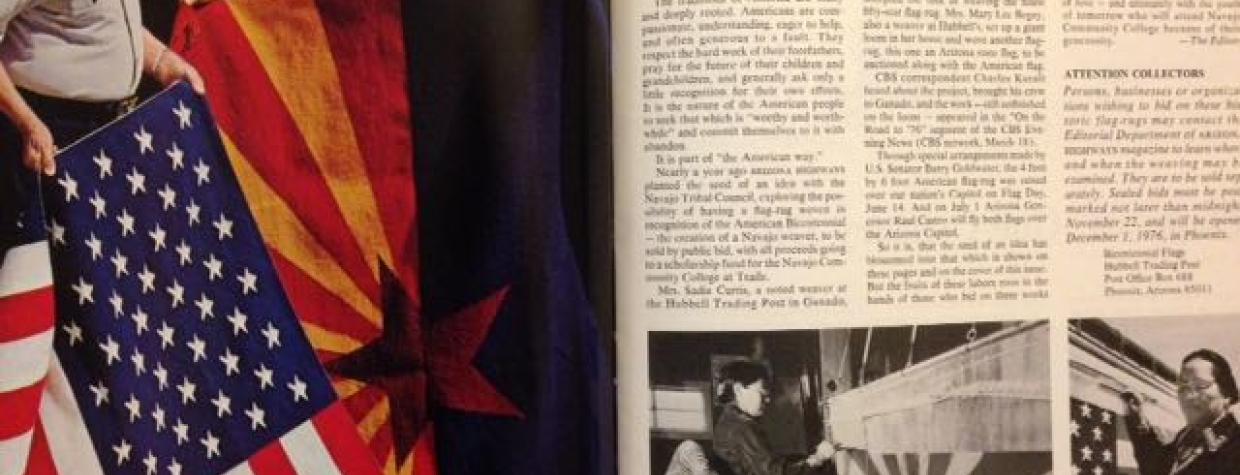Forty years ago this month, in conjunction with the U.S. bicentennial, the following story (also pictured above) appeared in Arizona Highways.
The traditions of America are many and deeply rooted. Americans are compassionate, understanding, eager to help, and often generous to a fault. They respect the hard work of their forefathers, pray for the future of their children and grandchildren, and generally ask only a little recognition for their own efforts. It is the nature of the American people to seek that which is "worthy and worthwhile" and commit themselves to it with abandon.
It is part of "the American way."
Nearly a year ago Arizona Highways planted the seed of an idea with the Navajo Tribal Council, exploring the possibility of having a flag-rug woven in recognition of the American Bicentennial — the creation of a Navajo weaver, to be sold by public bid, with all the proceeds going to a scholarship fund for the Navajo Community College at Tsaile.
Mrs. Sadie Curtis, a noted weaver at the Hubbell Trading Post in Ganado, accepted the task of weaving the finest fifty-star flag-rug. Mrs. Mary Lee Begay, also a weaver at Hubbell's, set up a giant loom in her home and wove another flag-rug, this one an Arizona state flag, to be auctioned along with the American flag.
CBS correspondent Charles Kuralt heard about the project, brought his crew to Ganado, and the work — still unfinished on the loom — appeared in the "On the Road to '76" segment of the CBS Evening News (CBS network, March 18).
Through special arrangements made by U.S. Senator Barry Goldwater, the 4 foot by 6 foot American flag-rug was raised over our nation's Capitol on Flag Day, June 14. And on July 1 Arizona Governor Raul Castro will fly both flags over the Arizona Capitol.
So it is, that the seed of such an idea has blossomed into that which is shown on these pages and on the cover of this issue. But the fruits of these labors rests in the hands of those who bid on these works of love — and ultimately with the youth of tomorrow who will attend Navajo Community College because of their generosity.
— Arizona Highways, July 1976

